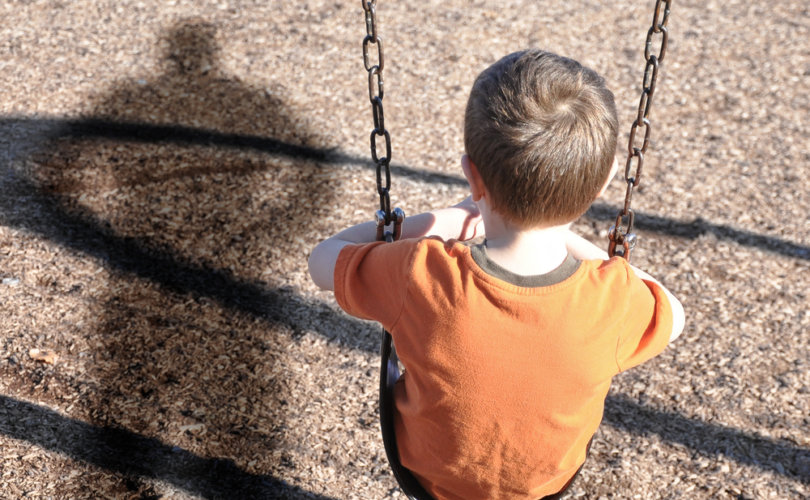Well, isn’t it just a heartwarming tale of modern parenting? As the New Brunswick Family Court navigates the riveting saga of Pip and the gender-confused “father,” one can’t help but marvel at the intricate dance of legal acrobatics. Who knew custody disputes could become such a fantastic opportunity for a crash course in gender theory and manipulation tactics? So, grab your popcorn, folks, because it looks like we’re in for a custody case that might just redefine the entire concept of parenting. Just what we needed, right? Another lesson in how to turn a simple birth certificate into a dramatic reality show. Kudos to all involved for giving us a front-row seat to this riveting spectacle of family law gone wild!
In a precedent-setting custody case that unfolded on August 8, 2023, the New Brunswick Family Court grappled with complex issues surrounding parental rights, gender identity, and the well-being of a young child. The case revolves around a gender-confused woman who asserts herself as the father of a two-and-a-half-year-old child, setting the stage for a legal battle that could have far-reaching implications for parental relationships and legal precedents.
Unveiling the Custody Battle: A Closer Look
The courtroom of the New Brunswick Family Court witnessed a significant legal showdown on that pivotal Tuesday in August. The proceedings were presided over by a “Master” of the court, who heard impassioned arguments from representatives advocating for the rights of both the child’s biological parents and the gender-confused woman. Central to the discussions were the intricacies of “parentage” and the custody arrangement concerning young Pip.
The Struggle for Custody: A Chaotic Turn of Events
As the day’s proceedings unfolded, it became apparent that Pip’s future was entangled in a tangled web of legal complexities. The immediate outcome was a rather chaotic and perplexing custody schedule, dictating that Pip would alternate between homes while awaiting another hearing. This interim arrangement, however, comes at a price – Pip’s formative and vulnerable years are marked by exposure to an environment of abuse and manipulation. Regrettably, this situation has already taken a toll on the young boy, manifesting in behavioral tics and signs of heightened stress.
A Fatherly Claim: Robin’s Assertion of Parental Rights
At the heart of the dispute stands “Robin,” the gender-confused woman who asserts her status as Pip’s father. Accompanied by her current female partner and legal representation, Robin lays claim to custody and “decision-making rights” over Pip, invoking an alleged custody agreement with “Felicity,” Pip’s biological mother.
However, Felicity’s camp, supported by her lawyer and family members, challenges Robin’s claim vehemently. Their counterclaim argues that Robin’s purported agreement was secured under duress, fueled by blackmail, and fundamentally coerced. The allegations depict a troubling narrative of manipulation and exploitation.
Allegations Unveiled: Affidavits and Manipulation
Felicity’s legal team presents a compelling case against Robin’s assertions. More than five sworn affidavits attest to the abuse and coercion Robin subjected Felicity to, forcing her into the contested agreement. Furthermore, evidence suggests that Robin manipulated the process to inscribe her name on Pip’s birth certificate – a document she exploited to withhold Pip from both biological parents. Disturbingly, this document was misused by law enforcement and child services to hinder Felicity’s attempts to rescue her son.
Seeking Resolution: Dueling Demands and Legal Claims
As the legal battle unfolds, the opposing sides present contrasting visions for Pip’s future. Robin’s plea to the court seeks 50 percent custody, equal decision-making rights, and legal recognition as Pip’s sole father. On the contrary, Felicity’s fervent plea aims for total custody and decision-making authority. Her demands extend further – rectification of the birth certificate, official recognition of Pip’s biological father, restraining orders against Robin and associates, and, of course, restitution for legal expenses.
The Master’s Conundrum: Navigating Complexity
The Master of the court, tasked with rendering a fair judgment, finds themselves challenged by the complexities presented. Robin’s omission of key details from her court application leaves the Master with no recourse but to address the allegations head-on. While the tone of the proceedings appears to favor Felicity, the road ahead promises a protracted and costly legal battle, casting a shadow over Pip’s future.
A Legal Landscape in Flux: Implications for All Parents
As this case inches closer to trial, its ramifications extend beyond the individuals involved, potentially reshaping the landscape of Canadian parenting. Felicity’s legal counsel highlights a disconcerting trend – courts progressively diminishing the significance of biological ties in custody matters. This shift poses a significant risk, especially if poor judgment in Felicity’s case allows Pip’s abusive former friend to be deemed his father. Such a ruling could set a precedent that may impact countless others.
A Glimpse into the Future: Unintended Consequences
Should Pip be subjected to Robin’s custody even intermittently, a concerning precedent emerges. Others could exploit this precedent to stake claims on “decision” rights over unrelated children. Whether it’s a former roommate, teacher, or acquaintance, the Pip case’s influence could empower individuals with little or no biological connection to assert co-parenting rights. This troubling scenario prompts the question: What safeguards exist to prevent those disconnected from a child’s life from vying for control?
In conclusion, the custody battle unfolding within the New Brunswick Family Court underscores the intricate interplay between parental rights, gender identity, and legal precedents. The case’s outcome has the potential to redefine established norms, leaving a lasting impact on the landscape of parenting and custody disputes in Canada. As legal proceedings continue, the fervent hope remains that justice will be served, safeguarding the well-being of young Pip and setting a just precedent for families throughout the nation.











The case’s outcome has the potential to redefine established norms, leaving a lasting impact on the landscape of parenting and custody disputes in Canada.